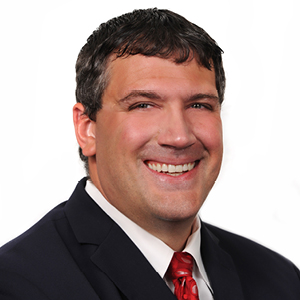Lawmakers Can Leave a Legacy of Increased Job Opportunity in Ohio
Nov 16, 2020The Ohio General Assembly has returned to Columbus for its lame-duck legislative session. And with visions of legacies dancing in legislators’ heads, now is the right time for lawmakers to adopt universal occupational licensing recognition and reduce or eliminate existing licensing restrictions that make it harder for people to start new careers.
Too often, Ohio’s occupational licensing laws act as permission-slip policies that force workers to get the government’s permission before they can earn a living. Universal occupational licensing recognition would end this practice and increase economic activity, helping Ohio recoup some of the more than 67,000 total jobs lost due to licensing restrictions. It would also make Ohio a national leader in licensing reform, and fulfill a campaign promise outlined in the DeWine/Husted Ohio Prosperity Plan.
As The Buckeye Institute outlined in Universal Licensing Reciprocity: How to Welcome Workers to Ohio, the policies found in House Bill 432 and Senate Bill 246 would ensure more professionals are able to continue their careers and would reduce unnecessary barriers to starting a new job for thousands of workers. By adopting universal license recognition, Ohio would make it easier and faster for trained professionals to immediately start work when moving to Ohio, allow professionals to immediately serve their new communities (particularly important for medical professionals during the pandemic), and would make Ohio more worker-friendly without endangering public health and safety.

Along with our partners—Americans for Prosperity-Ohio, and the Goldwater Institute—The Buckeye Institute has called on Ohio’s lawmakers to “build upon earlier reforms and make it easier for licensed workers in every profession to move to the Buckeye State where they can earn a living…in their chosen professions.”
Lawmakers can further help Ohioans by reducing or eliminating existing licensing restrictions by using the process established in the Buckeye-inspired Senate Bill 255. This ground-breaking legislation protects workers from entrenched special interests by establishing one of the most aggressive licensing review processes in the country, which requires the government licensing boards to show why the burdens they impose on job-seekers are necessary to protect the public. An entire group of licenses stands ready for streamlining, which The Buckeye Institute outlined in Opening Doors: Occupational Licensing Reform in Ohio After Senate Bill 255.
Policymakers don’t need to wait on the outcome of the SB 255 process to reform one of Ohio’s most egregious licensing burdens. Lawmakers can and should quickly reduce the training hours required for cosmetologists. There is no public health or safety rationale for a cosmetologist in Ohio to need more hours of training than a cosmetologist in New York, Texas, or our neighboring state of Pennsylvania. These burdensome requirements cost Ohioans thousands of dollars while protecting a powerful and entrenched special interest—for-profit cosmetology schools.
Ohio policymakers have an opportunity to use this lame duck to make Ohio a national leader, and cut back on the state’s unnecessary occupational licensing restrictions that only serve to protect entrenched special interests at the cost of Ohio workers. By adopting universal occupational licensing recognition and reducing or eliminating existing licensing restrictions, policymakers would increase job opportunities in Ohio. The legacy of increased job opportunity is one in which every legislator can take immense pride.
Greg R. Lawson is the research fellow at The Buckeye Institute and is the author or co-author of numerous research papers on the impacts of Ohio’s occupational licensing restrictions.

